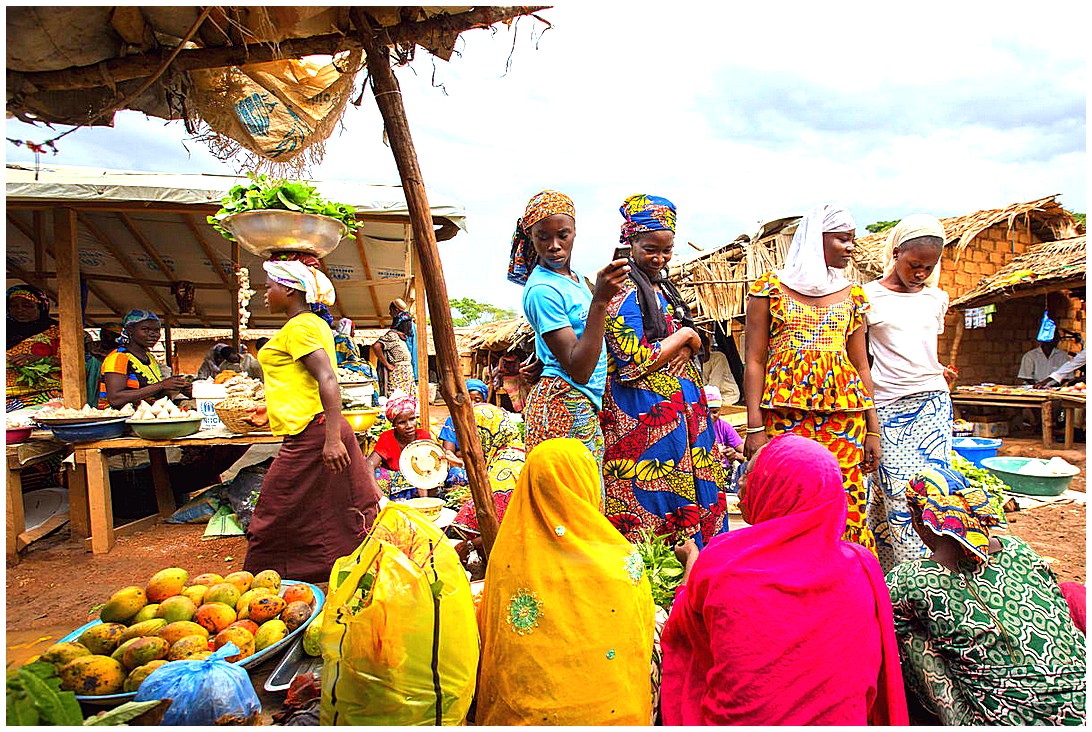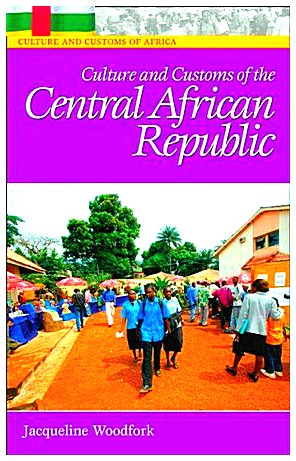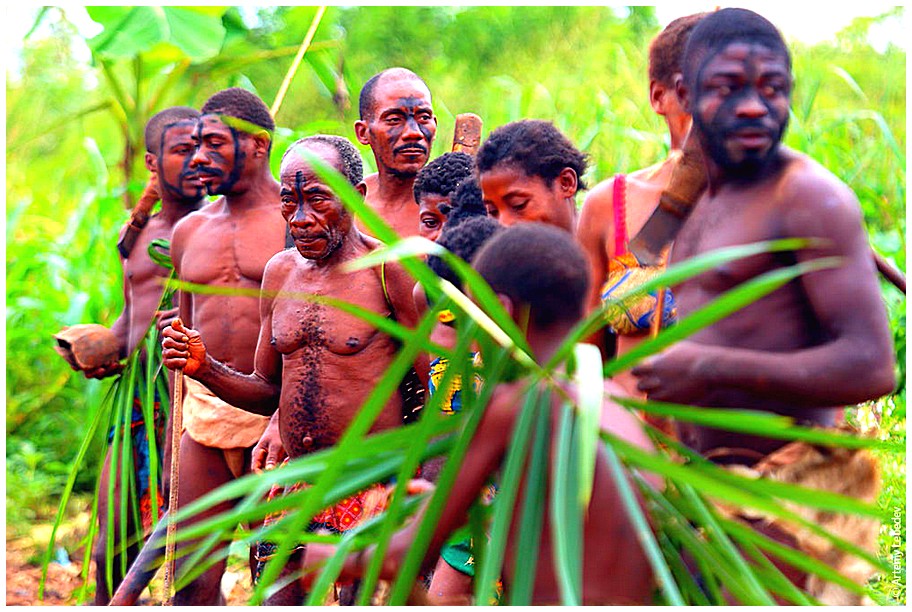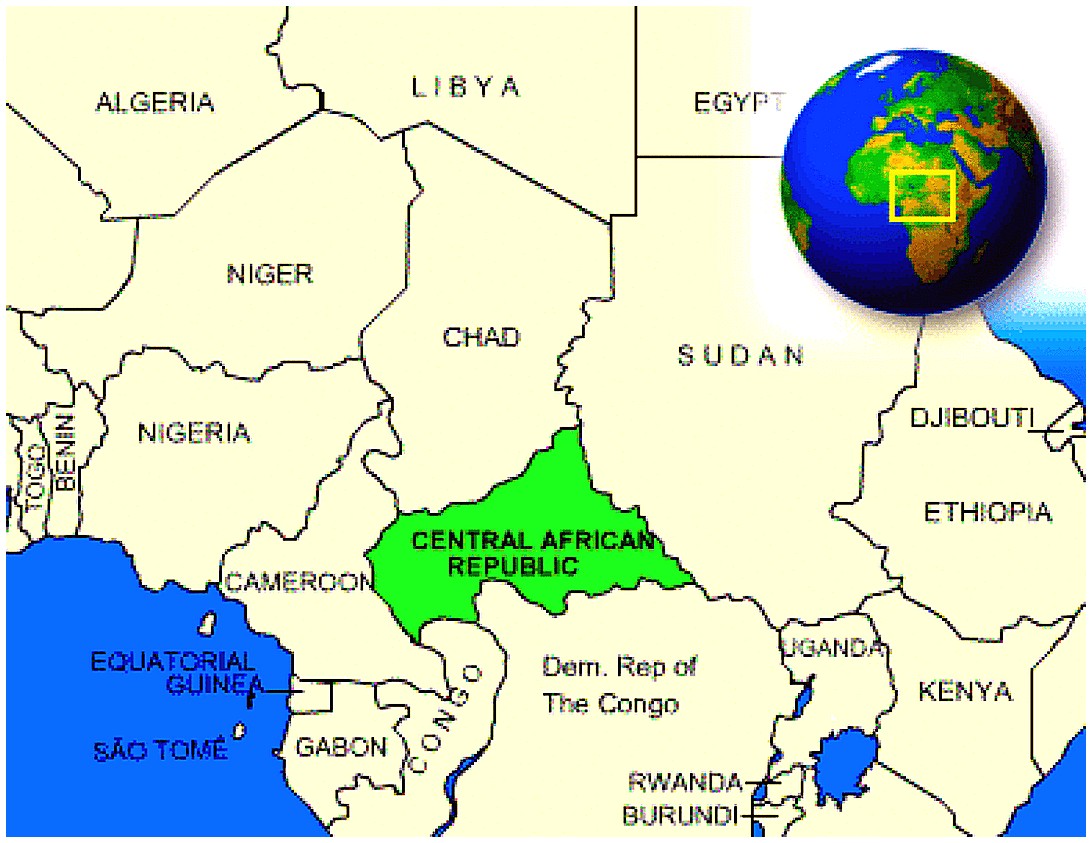Introduction to the Etoro Culture

The Etoro people of the Central African Republic have a unique and fascinating culture that has been passed down through generations. From their traditional music and dance to their spiritual beliefs, the Etoro are an intriguing group of people who have managed to preserve their cultural identity despite outside influences. In this article, we will explore the various aspects of the Etoro culture in order to gain a better understanding of its history and significance. We will look at how they view family life, religion, art forms, language, food and more. By learning about the Etoro culture we can appreciate its beauty as well as gain insight into how it has evolved over time.
History of the Etoro People

The Etoro people are an ethnic group of Central African Republic, living in the western part of the country. They have a long and rich history that dates back to at least the 12th century. The Etoro were originally hunter-gatherers who lived off the land, but over time they developed a more complex society with social stratification and distinct cultural practices.
In terms of religion, the Etoro practice traditional animism which is centered around ancestor worship and nature spirits. This belief system has remained strong throughout their history despite outside influences from Christianity and Islam which have been present in some areas since colonial times.
The Etoro are known for their elaborate masks and costumes used during rituals such as initiation ceremonies or funerals. These masks represent various animals or deities that are believed to be powerful forces in their culture’s spiritual world. Music is also important to them; they use drums, flutes, rattles, bells and other instruments to accompany songs sung during these rituals as well as everyday life activities like hunting or gathering food.
Traditionally, the Etoro had a subsistence lifestyle based on agriculture but today many have adopted modern methods of farming while still maintaining their traditional beliefs and customs. They continue to rely heavily on natural resources such as fishing for sustenance while others work in nearby towns or cities where there is more economic opportunity available than what can be found within their own communities
Geography and Climate of Central African Republic

The Central African Republic (CAR) is a landlocked country located in the heart of Africa. It borders Chad, Sudan, South Sudan, Democratic Republic of Congo, Cameroon and Republic of Congo. The CAR has an area of about 622,984 square kilometers and its population is estimated to be around 4.7 million people as of 2023.
The geography of the Central African Republic consists mostly of flat plains with some hills in the northeast region. The climate is tropical with hot temperatures throughout most months and high humidity levels during the rainy season from May to October. Average temperatures range between 20-30°C (68-86°F). There are two distinct seasons: wet season from April to October and dry season from November to March when there are fewer rains but more sunshine hours per day than during other months.
Due to its location within the equatorial zone, it experiences heavy rainfall that can reach up to 1500 mm annually which makes it one ideal place for farming activities such as growing crops like cassava or raising livestock like cattle or goats among others . This also helps sustain a rich biodiversity including various species of birds and mammals found in this part of Africa such as lions , elephants , antelopes , buffaloes etc .
Social Structure and Gender Roles in Etoro Society

The Etoro people of the Central African Republic have a distinct social structure and gender roles that are integral to their culture. The society is patriarchal, with men occupying the highest positions in the hierarchy. Men are responsible for providing food, protection, and leadership within the community while women play a more supportive role by taking care of children and managing domestic affairs.
Gender roles among the Etoro people are largely determined by age and marital status. Women typically marry young—often before they reach adulthood—and become homemakers who take care of their husbands’ needs as well as those of their children. Men, on the other hand, may remain unmarried until later in life when they can afford to provide for a family financially or through labor contributions such as hunting or farming.
In addition to traditional gender roles within marriage, there is also an emphasis on respect between genders throughout all aspects of life in Etoro society. This includes respecting elders regardless of gender; men must show deference to older women just as much as women must show deference to older men. In general, both genders strive for harmony within families and communities alike which helps create strong bonds between them over time.
Religion, Beliefs, and Rituals in the Etoro Culture
The Etoro people of the Central African Republic have a unique set of beliefs, rituals, and religious practices that have been passed down through generations. The Etoro believe in a single god who is responsible for creating and sustaining life on earth. They also believe in ancestral spirits who can help them achieve their goals and protect them from harm.
Religious ceremonies are an important part of the Etoro culture, with many rituals being performed to ensure good luck or ward off evil spirits. These include animal sacrifices, prayers, offerings to ancestors, and dances. In addition to these traditional ceremonies, there are also modern Christian services held by some members of the community.
Beliefs about death are also an integral part of the Etoro culture; they believe that when someone dies their spirit will continue living on in another form such as an animal or bird. Funerals involve elaborate rituals including singing songs for the deceased person’s spirit and offering food to it before burial takes place.
Rituals related to marriage are very important in this culture; couples must undergo several rites before they can be considered married according to traditional customs. These include exchanging gifts between families as well as making promises regarding how each partner will treat one another throughout their lives together.
By exploring the beliefs, rituals, and religion practiced by the Etoro people we gain insight into this fascinating culture located in Central Africa’s interior regions
Language, Art, Music, and Dance of the Etoro People
The Etoro people are an ethnic group located in the Central African Republic. They have a rich cultural heritage that is expressed through language, art, music, and dance. The Etoro language is a member of the Ubangian family of languages spoken by approximately 10,000 people in the region. Art forms such as pottery and weaving are used to express traditional values and beliefs. Music plays an important role in Etoro culture with songs being sung for special occasions or to celebrate festivals. Dance is also integral to their culture with many different styles being performed throughout the year at various events. Exploring these aspects of Etoro culture can give us insight into this unique group of people living in Central Africa today.
Traditional Cuisine of the Central African Republic
The Central African Republic is home to a diverse range of cultures, each with its own unique traditional cuisine. The Etoro people are no exception and their diet consists of mostly plant-based foods such as cassava, yams, maize, millet, sorghum and peanuts. Meat dishes include bushmeat (wild game) as well as fish from the Ubangi River. Fruits such as bananas and mangoes are also commonly eaten in the region. Other staples include okra stewed with tomatoes or onions; rice cooked with vegetables; stews made from groundnuts or beans; fried plantains served with sauces made from chilies or peppers; and various soups made using local ingredients like pumpkin leaves or spinach. As for beverages, palm wine is popular among the Etoro people along with locally brewed beer known as “fou fou”.
Economic Activities within the Etoro Community
The Etoro community in the Central African Republic is known for its strong sense of communalism and collective responsibility. This is reflected in their economic activities, which are based on sharing resources and working together to ensure everyone’s needs are met. In particular, they practice subsistence farming and hunting as well as trading goods among each other. Additionally, some members of the community engage in small-scale businesses such as selling crafts or providing services like hairdressing or tailoring. The Etoro also have a tradition of bartering with neighboring communities for items that cannot be found locally. All these activities help to sustain the Etoro culture and contribute to their overall wellbeing.
Tourism Opportunities in Central African Republic
The Central African Republic is home to a diverse range of cultures, including the Etoro people. This unique culture offers visitors an opportunity to explore and experience its vibrant customs and traditions. From traditional music and dance performances to exploring the local markets, there are plenty of tourism opportunities in the Central African Republic for those interested in learning more about this fascinating culture. Visitors can also take part in activities such as hunting or fishing with local guides, or simply enjoy the natural beauty of this region by taking a hike through one of its many national parks. With so much to offer, it’s no wonder that travelers from around the world flock to the Central African Republic each year!
Conservation Efforts for Preserving the Unique Cultural Heritage of The Central African Republic
The Central African Republic is home to a unique cultural heritage that must be preserved for future generations. The Etoro people are an ethnic group native to the region, and their culture has been passed down through generations of oral tradition. Conservation efforts are essential in order to protect this rich history and ensure its survival into the future.
One way to preserve the Etoro culture is by creating educational programs about it. This can include lectures, workshops, seminars, and other events aimed at increasing awareness of the culture’s importance among both locals and visitors alike. Additionally, encouraging tourism within the region can help promote appreciation for local customs while also providing much-needed economic support for preservation initiatives.
It is also important to document as much information as possible about traditional practices such as music, dance, art forms, rituals and ceremonies so that they may be shared with others around the world who wish to learn more about them. Furthermore, protecting sacred sites from development or destruction will help maintain their significance within Etoro society over time.
Finally, government policies should aim at preserving indigenous languages spoken by members of this ethnic group in order to keep alive their ancient stories and traditions which have been passed down orally throughout centuries. By taking these steps towards conservation we can ensure that this unique cultural heritage remains intact for many years to come!
| Characteristic | Etoro Culture | Other Cultures in Central African Republic |
|---|---|---|
| Language Spoken | Baka, Mbum, and Ngambay languages are spoken by the Etoro people. | The other ethnic groups in the Central African Republic speak various languages including Gbaya, Mandjia, Sara-Kaba Deme, Mboum and Yakoma. |
| Religion | Animism is practiced by the Etoro people. | — |
| Social Structure | — Traditional social structures are present among many of the ethnic groups in the Central African Republic with elders playing an important role in decision making. |
What is the history of the Etoro culture in Central African Republic?
The Etoro people are an ethnic group located in the Central African Republic, and have a long history that dates back to the 15th century. They are believed to be descended from a small group of immigrants who settled in the area during this time period. The Etoro were originally hunter-gatherers, but eventually began to practice agriculture as well. They also developed their own language and culture over time, which is still practiced today. In recent years, the Etoro have become increasingly involved in politics and economics in Central African Republic due to their large population size and influence within the country.
How does the Etoro culture differ from other cultures in Central African Republic?
The Etoro culture in Central African Republic is unique and distinct from other cultures in the region. It is characterized by a strong sense of community, an emphasis on family ties, and a focus on traditional values. Additionally, the Etoro people have their own language and customs that are different from those of other ethnic groups in Central African Republic. They also practice a variety of religious beliefs including animism, ancestor worship, Christianity, and Islam. In terms of social organization, the Etoro are organized into clans with each clan having its own leader or chief who makes decisions for his or her group. Furthermore, they value hard work and education as well as maintaining close relationships with nature through hunting and fishing activities.
What are some of the traditional practices and beliefs of the Etoro people?
The Etoro people of Papua New Guinea have a rich culture and history that is deeply rooted in their traditional practices and beliefs. These include:
- Animism – the belief that all things, including animals, plants, rocks, rivers and mountains are alive with spiritual energy.
- Taboo avoidance – the practice of avoiding certain foods or activities because they are believed to be bad luck or harmful to one’s health.
- Rituals for success – rituals such as dancing and singing are performed before hunting trips or other important events to ensure good luck and successful outcomes.
- Shamanism – shamans act as intermediaries between humans and spirits by performing healing ceremonies for those who are ill or injured; they also use divination techniques such as dream interpretation to gain insight into problems faced by individuals or communities at large.
- Initiation rites – young men must undergo initiation ceremonies in order to become full members of the tribe; these involve physical challenges such as climbing tall trees without using tools, fasting for long periods of time, engaging in ritualized combat with other initiates, etc..
Are there any special rituals or ceremonies that are unique to this culture?
Yes, there are many special rituals and ceremonies that are unique to this culture. These may include traditional festivals, religious observances, weddings, funerals, naming ceremonies, initiation rites of passage and other important life events.
How has modern technology impacted on traditional ways of life for members of this community?
Modern technology has had a significant impact on traditional ways of life for members of this community. It has enabled people to stay connected with each other and the world at large, providing access to information and resources that were previously unavailable. Additionally, it has allowed people to interact more easily with their peers in different parts of the world, creating opportunities for cultural exchange and collaboration. Technology also allows individuals to access services such as banking, healthcare, education, entertainment and communication from virtually anywhere in the world. This can help reduce poverty levels by allowing communities access to resources they may not have otherwise been able to afford or obtain locally. Finally, modern technology can also be used as a tool for preserving traditional culture through digital archives and online platforms that document stories from past generations.
What challenges have been faced by members of this community as a result of globalization and westernization?
Globalization and westernization have posed a number of challenges to members of this community. These include the loss of traditional cultural practices, language barriers, economic disparities between those with access to global markets and those without, increased competition for jobs and resources due to migration from other countries, environmental degradation caused by large-scale industrial production, and social issues such as racism and xenophobia. Additionally, globalization has led to an increase in consumerism which can lead to unsustainable consumption patterns that further damage the environment.
Are there any efforts being made to preserve and promote cultural heritage within this group?
Yes, there are efforts being made to preserve and promote cultural heritage within this group. These efforts include organizing events that celebrate the culture of the group, such as festivals or performances; creating educational programs that teach about the history and traditions of the group; preserving traditional art forms like music, dance, and storytelling; and providing resources for members of the community to learn more about their heritage.
What can be done to ensure that future generations will continue to benefit from their rich cultural heritage?
To ensure that future generations will continue to benefit from their rich cultural heritage, it is important to take steps to preserve and protect it. This can include preserving artifacts, monuments, and other physical reminders of the culture; teaching traditional practices and stories through education; promoting cultural events such as festivals or performances; supporting local businesses that are connected with the culture; encouraging intergenerational dialogue between elders and youth in order to pass down knowledge; advocating for laws that protect cultural sites and resources; and providing access to materials related to the culture in libraries, museums, etc.

05.05.2023 @ 13:44
leadership for their families and communities. Women, on the other hand, are responsible for domestic duties such as cooking, cleaning, and child-rearing. However, women also play an important role in the community as they are responsible for passing down cultural traditions and values to the younger generation.
Despite the traditional gender roles, the Etoro society values equality and mutual respect between men and women. Women are allowed to participate in decision-making processes and have a say in matters that affect their families and communities. Additionally, the Etoro society recognizes the importance of education and encourages both boys and girls to attend school.
Overall, the Etoro culture is a fascinating and unique aspect of the Central African Republic. By learning about their history, beliefs, and social structure, we can gain a better understanding and appreciation for this rich and diverse culture.